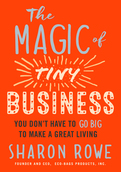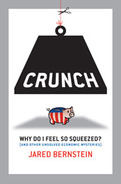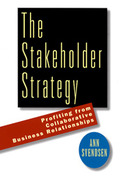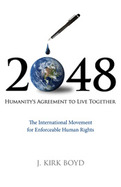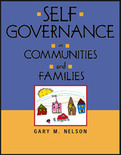—Seth Godin, author of Linchpin
Too many of us feel trapped by work that keeps us from living our purpose. We fantasize about starting our own business, yet we're warned against falling into debt, working eighty hours a week, and coping with the pressure to grow. Eco-Bags Products founder Sharon Rowe says there's another way: go tiny.
Like a tiny house, a tiny business is built on maintaining a laser focus on what is essential by living an intentional life. As an entrepreneur and mother, Rowe is most concerned with putting family first, maintaining financial security, and doing something that makes an impact in the world. Using the success story of Eco-Bags Products, Rowe distills the step-by-step process of building a profitable, right-scaled, sustainable venture that doesn't compromise your values. She shows you how to test your concept, manage your money and priorities, and more, while staying true to the "tiny" ethos.
2008
If you'd like some straight answers, premier economist Jared Bernstein is here to help. In Crunch he responds to dozens of questions he has fielded from working Americans, questions that directly relate to the bottom-line, dollars-and-cents concerns of real people. Chances are if there's a stumper you've always wanted to ask an economist, it's solved in this book.
Bernstein is fed up with “Darth Vaders with PhDs” who use their supposed expertise to intimidate average citizens and turn economics into a tool for the rich and powerful. In the pages of Crunch, Bernstein lays bare the dark secret of economics: it's not an objective scientific discipline. It's a set of decisions about the best way to organize our society to produce and distribute resources and opportunities. And we all can, and must, participate in these decisions. “America is a democracy,” he writes. “And in a democracy all of us, not just the elites and their scholarly shock troops, get to weigh in on biggies like this.”
Our economy will be only as fair as we can make it. In this lively and irreverent tour through everyday economic mysteries, Bernstein helps us decode economic ”analysis,” navigate through murky ethical quandaries, and make sound economic decisions that reflect our deepest aspirations for ourselves, our families, and our country.
Is Social Security really going bust, and what does that mean to me? If I hire an immigrant, am I hurting a native-born worker? Why does the stock market go up when employment declines? Should I give that homeless guy a buck? What’s a “living wage”? How much can presidents really affect economic outcomes? What does the Federal Reserve Bank really do? And even when some pundits say the economy’s sound, why do I still feel so squeezed?
If you’d like some straight answers, premier economist Jared Bernstein is here to help. In Crunch he responds to dozens of questions he has fielded from working Americans, questions that directly relate to the bottom-line, dollars-and-cents concerns of real people. Chances are if there’s a stumper you’ve always wanted to ask an economist, it’s solved in this book.
Bernstein is fed up with “Darth Vaders with PhDs” who use their supposed expertise to intimidate average citizens and turn economics into a tool for the rich and powerful. In the pages of Crunch, Bernstein lays bare the dark secret of economics: it’s not an objective scientific discipline. It’s a set of decisions about the best way to organize our society to produce and distribute resources and opportunities. And we all can, and must, participate in these decisions. “America is a democracy,” he writes. “And in a democracy all of us, not just the elites and their scholarly shock troops, get to weigh in on biggies like this.”
To not weigh in, Bernstein insists, is a profoundly political act, one with damaging consequences. Our economy will be only as fair as we can make it. In this lively and irreverent tour through everyday economic mysteries, Bernstein helps us decode economic “analysis,” navigate through murky ethical quandaries, and make sound economicdecisions that reflect our deepest aspirations for ourselves, our families, and our country.
- By the author of the internationally acclaimed books Corporation Nation, The Wilding of America, People Before Profit, and The Pursuit of Attention
- Shows that Americans are ruled not just by a particular administration but by a corporate regime, spanning several decades and incorporating both mainstream political parties, which puts the interests of big business ahead of those of ordinary Americans
- Offers hope-and detailed strategies and tactics-for defeating the corporate regime and returning America to its people
In The Stakeholder Strategy, sociologist Ann Svendsen presents an effective and practical step-by-step guide that companies can use to forge a network of powerful and profitable collaborative stakeholder relationships.
While some forward-thinking corporations have tried limited collaborative approaches-focusing on one stakeholder group at a time-few have taken a comprehensive and strategic approach to building relationships with all of their stakeholders, notes Svendsen. And, while considerable commitment to the idea of stakeholder collaboration exists, there is a lack of knowledge and understanding about how to develop these relationships. The Stakeholder Strategy is the first book to show business leaders and managers how to establish and maintain positive, mutually beneficial stakeholder relationships. Based on a synthesis of ideas from community relations, corporate philanthropy, stakeholder management, organizational change, sustainability, and the corporate social responsibility literature, it offers an integrated framework, as well as the practical tools for developing new kinds of collaborative relationships.
Svendsen uses easy-to-grasp concepts from everyday life, such as the process we go through in finding a mate or developing a long-term friendship, to illustrate these relationship-building strategies. She lays out the steps a company should take to create a collaboration-friendly organization: establishing a social mission, values, and ethical guidelines; assessing corporate readiness for collaboration; and making changes in communication, information and reward systems to support internal and external collaboration. Featuring case study examples from companies in North America and Europe who are working to build collaborative relationships with their stakeholders, The Stakeholder Strategy is the first book to provide a detailed explanation of how to conduct stakeholder audits and social audits so that companines can evaluate their relationship-building success and keep on track.
- Provides an integrated framework for understanding a corporations responsibilities to a broad array of stakeholders-from customers to suppliers, employees, and communities.
- Offers a step-by-step guide as well as practical strategies that companies can use to forge a network of powerful and profitable collaborative
- stakeholder relationships.
- Features case study examples of companies across North America and Europe that are building collaborative relationships with their stakeholders.
2010
The handbook of an extraodinary project:
Written documents have always played a key part in the evolution of human rights—the Code of Hammurabi, the Magna Carta, the Declaration of Independence. In 1948 the United Nations adopted the Universal Declaration of Human Rights, but its provisions are not enforceable so its promise remains unfulfilled. It's time to take the next step. 2048 shows how we can create an agreement that will truly guarantee global human rights and the rule of law and have it in place by the 100th anniversary of the Universal Declaration—a visionary, audacious, but eminently achievable goal. J. Kirk Boyd outlines the freedoms this new document would protect and describes successful international agreements already in place that can serve as models.
But the 2048 Project needs you. “What you do with what you read,” Boyd writes, “is as important as what this book says.” He explains how people in all countries can help shape the document through the 2048 Project website (www.2048.berkeley.edu)—hosted by the University of California, Berkeley, School of Law—and offers practical advice for reaching out and building support step by step so that the International Bill of Rights will become the foundation of an irresistible grassroots movement.
We are entering the 21st century in a period of great uncertainty and change. People are wary of government and have lost confidence in social institutions-from social welfare and schools to healthcare programs. That loss of confidence has undermined the community and family life that is the very foundation of our society. Self-Governance in Communities and Families shows how individuals can reconnect to and revitalize their social institutions so that they are effective in serving the needs of all.
Gary Nelson identifies the existing social models we are moving away from and explores the new, emerging pattern of relationships we are shifting to in our social institutions. He reveals why open dialogue and partnerships between people and their social institutions are essential to the well-being of families and thriving communities. He describes why social regeneration is best pursued through these partnerships, with people and stakeholders within communities taking positive action to develop and protect the well-being of their families and the health of their communities.
Applying both business and social science concepts to the day-to-day management of social institutions, Nelson offers a proven, practical method-community self-governance dialogues-for engaging people in the redesign and revitalization of social institutions. The author shows how-by creating opportunities for individuals and families to proactively participate in developing a strategic plan for how their institutions are managed, run, and evaluated-this dialogue method ultimately empowers people to take control of their own lives. He also reveals how active participation in these open dialogues ignites creative ideas and new energy for the redirection and reshaping of those institutions.
With numerous examples and anecdotes, Nelson illustrates the values, beliefs, and principles that underlie how we learn and make decisions in a self-governing democratic culture. He provides tips for shared learning and accountability, ownership and governance, and the creation of a culture of self-governance. And he offers advice on how to maintain an ongoing engagement and partnership between the public and its social institutions.
Communities and families can be strengthened when each of us takes responsibility for ourselves and works in partnership with others to restore our social institutions. Self-Governance in Communities and Families sets forth clear, doable strategies for fostering both responsibility and ownership through dialogue and collaboration between public and private sectors.
- Provides community leaders and others with a framework for bringing all parts of a community and the "system" together around the common purpose of strengthening communities and families
- Outlines a philosophy of self-governance and empowerment for at-risk families, individuals, and neighborhood communities
- Offers managers a dynamic, adaptive model for opening up, supporting, and steering the process of social change


